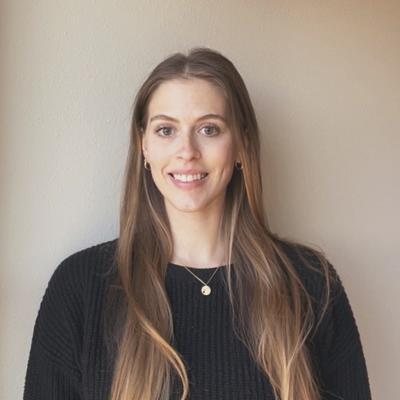Reflectance January 2021
Quick Updates, NSF Earth Data Science Corps by Nate Quarderer, A Q&A with Natasha Stavros

Quick Updates
- Earth Lab's Extremes team is currently working on a NSF-funded Coupled Natural and Human Systems project, seeking to understand and quantify coupling between climate variables (e.g. precipitation) and socio-environmental parameters (e.g. crop yield). Systematically identifying these relationships can help understand system sensitivity to climate and how management may impact the system.
- Be sure to check out the upcoming Analytics Hub publication of "Fully Convolutional Neural Network for Impervious Surface Segmentation in Mixed Urban Environment" in the Febuary edition of Photogrammetric Engineering and Remote Sensing. The work classifies impervious surfaces from satellite imagery and has implications for understanding urban systems and water run-off.

NSF Earth Data Science Corps: Lowering Barriers to Learning and Teaching Earth Data Science
There is a widening gap between the demand for a data-literate workforce and the supply of properly trained individuals with the background in data science. This gap is even more pronounced among women, minorities, and other populations that are underrepresented in careers in Science, Technology, Engineering, and Math (STEM).
Last summer, Earth Lab’s Earth Analytics Education team completed the first year of the National Science Foundation (NSF) funded Earth Data Science Corps (EDSC), including technical workshops and a paid internship designed to help students from communities historically underserved in STEM develop critical data science skills. Participants included students and faculty from CU Boulder, Metropolitan State University of Denver, Front Range Community College, United Tribes Technical College (Bismarck, ND), and Oglala Lakota College (Kyle, SD).
Learning outcomes from the EDSC include helping students develop comfort and confidence in different technical areas that included summarizing, analyzing, and displaying data with Python, working with spatiotemporal raster and vector data, as well as the development of ‘super’ skills including communicating scientific findings and collaborating with peers in interdisciplinary teams. During their time with the EDSC, participants completed project-based internships that included researching flooding on Tribal lands, climate projections for alpine ecosystems, and COVID-19 data accesibility in Tribal communities.
Following completion of the EDSC, students demonstrated greater confidence and comfort performing technical tasks with Python, communicating their science, and collaborating with others. EDSC participants’ science identities developed as a result of completing the workshops and internships with more students identifying as scientists.
We hope to continue to help students grow in these areas in years 2 and 3 of the EDSC. This work was funded by a $1.2 million NSF Harnessing the Data Revolution (HDR) award.

Nathan Quarderer is a postdoc working with the Earth Education Initiative team. He currently helps lead assessment and evaluation of the Earth Data Science Corps and the Earth Data Analytics - Foundations professional certificate program.


A Q&A with Earth Lab's new Analytics Hub Director -- Natasha Stavros
Where did you work before coming here and what did you do?
I was an Applied Science System Engineer at the Jet Propulsion Laboratory, California Institute of Technology.
What interested you about working for Earth Lab?
I love Earth Lab's commitment to open science and pioneering novel analytic methodologies for integrating data from satellites to the internet of things to investigate global environmental change.
What are you most looking forward to in your new position?
I am really looking forward to the fresh ideas from the next generation of technology savvy scientists.
What are some of your hobbies or interests?
I am an avid yogi and I ride horses, write, and travel, but of course I'd be lying if I didn't say that I love spending time with my family and my pets.
Where is your dream vacation destination (once the pandemic is over)?
My best traveling has been with a backpack, hiking and the great outdoors! Namibia was pretty magical, so maybe Madagascar? Though India is a favorite too -- the food is so good.

Careers at Earth Lab
Interested in applying your data science skills to important environmental and social issues (or know someone who is interested)?
Earth Lab is hiring for positions at the undergraduate, graduate, and post-doctoral levels.
Visit https://www.colorado.edu/earthlab/jobs-earth-lab for more details.






